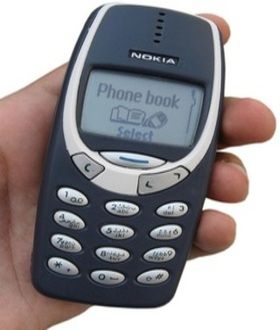At this point in time, nothing seems impossible anymore. With the right resources and ideas, you can create something innovative and useful and hopefully crack the market for real. It is what Nokia probably has in mind when they launched Nokia Sleep. For some who are no longer familiar with this mobile phone giant, Nokia once dominated the world with its sturdy and ever reliable Nokia handsets before iPhone released its first ever iPhone and when smart technology was somewhat unheard of. The sad fate of this Finnish tech giant is one riches to rags story we should keep in mind because it is relatively so easy for people to forget about you no matter your past achievements. But if there’s one commendable thing about them is that despite their failure to evolve and the passage of time, it did not stop them from giving it a try again and attempting to be relevant once more amidst the countless competition.
 This time around, they have given up on the consumer phone industry completely and delved into an entirely new market: sleep technology. The technology they have developed is highly similar to Apple’s previous acquisition: Beddit. You’ve probably already come across several devices that promise to help you deal with sleep problems once and for all by informing you about important parameters that influence sleep and how well you are doing yourself. You’ll get a score so it is easy to visualize your sleep quality and pattern in a glance.
This time around, they have given up on the consumer phone industry completely and delved into an entirely new market: sleep technology. The technology they have developed is highly similar to Apple’s previous acquisition: Beddit. You’ve probably already come across several devices that promise to help you deal with sleep problems once and for all by informing you about important parameters that influence sleep and how well you are doing yourself. You’ll get a score so it is easy to visualize your sleep quality and pattern in a glance.
Nokia Oyj, continuing to seek success in new hardware categories after exiting the consumer phone business, is introducing a sleep tracker that will nestle under a person’s bed sheets.
The Finnish company calls its device, the Nokia Sleep. It has movement sensors and software algorithms that can determine how long a person slept, if the sleep was interrupted, and whether the person snored. Nokia’s software will give people an overall “sleep score,” and will also work with smart home appliances so that, for example, lights can automatically turn on or off if the system senses that the person has fallen asleep or woken up.
There is nothing wrong in trying new technologies to solve perennial problems especially one as crucial and as frustrating as sleep. Nokia may be new in the game but if you look at it closely, other brands have already introduced the same concept. Even the company that was acquired by Apple offers the same technology. Even Nokia itself already issued a disclaimer stating that their Nokia Sleep is not as accurate as clinical-grade sleep studies but that does not mean they aren’t helpful either.
The Finnish company just announced a gadget at CES called Nokia Sleep, which is described as an “advanced sensor” built into a mattress pad. The mattress pad, which is Wi-Fi connected, slides under your mattress and is supposed to record your sleep patterns. That data is then synced to Nokia’s Health Mate app, where it’s analyzed and contributes to a “sleep score.” In addition to monitoring sleep cycles, Nokia says the sleep sensor will also track snoring patterns.
Smart home nerds will dig this: Nokia Sleep also integrates with IFTTT, an automation app, so you can set up triggers tied to your sleep habits. You can, for example, set it up so that your lights go off and the temperature goes down in the room once you go to sleep, or to open the blinds when you wake up (provided the lights, thermostat, and blinds in your home are all connected to Wi-Fi).
(Via: https://www.theverge.com/2018/1/8/16859168/nokia-sleep-sensor-ifttt-smart-home-alexa-ces-2018)
What’s even better about innovative technologies like Nokia Sleep is that they connect easily to the Internet of Things. Most tech gadgets these days are WiFi ready and thus offer more perks than their traditional counterparts. Your sleeping woes don’t stand a chance with the Nokia Sleep and we are also hopeful that it can empower everyone to take charge of their health. We can only do that if we know our bodies both inside and out. Hence, we can’t do away with sleep tracking as it gives us a clear picture of what happens to our bodies once we shut our eyes and drift off to sleep.
Even patients diagnosed with sleep apnea can benefit from the Nokia Sleep although it is not exactly what doctors have in mind as the ideal management for this sleep disorder. It helps that we have a better understanding of our bodies and we can monitor our sleep health on our own without having to spend a night in a pricey sleep clinic but nothing beats CPAP for sleep apnea. If you can’t tolerate it, handy alternatives like anti-snoring mouthpieces will do just fine. Brands like https://snoringmouthpiecereview.org/zquiet and https://snoringmouthpiecereview.org/sleeptight are good for starters. You have the peace of mind of sleeping for the night without worrying about your health while you consult with your doctor as to the best course of action for your specific condition.
